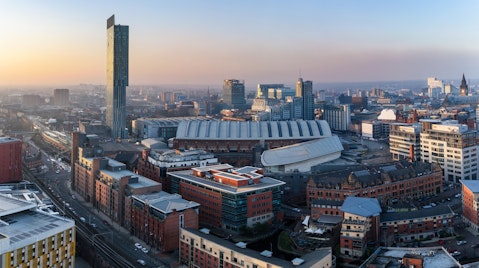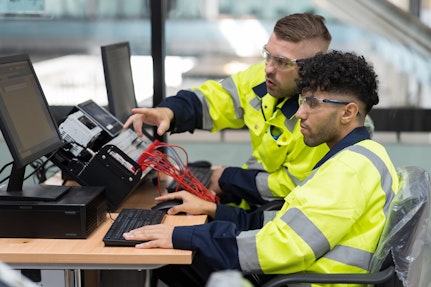Greater Manchester: a Living Wage City Region
Key learnings from Greater Manchester's journey to become the first Living Wage City Region

GMCA and the Greater Manchester Good Employment Charter
Ravi Badat, Economic Strategy Programme Lead

GMCA and the Greater Manchester Good Employment Charter
Ravi Badat, Economic Strategy Programme Lead

Ravi Badat, Economic Strategy Programme Lead at Greater Manchester Combined Authority, led on efforts for Greater Manchester to become the first Living Wage City Region in the UK. In this interview with the IGN team, Ravi shares key learnings and reflects on the significance of this journey.
Why was it important for Greater Manchester to pursue Living Wage Place recognition as a lever for delivering local inclusive growth?
In Greater Manchester, we recently commissioned an Independent Inequalities Commission (IIC) report which recommended that the city region aim for 100% of employees to be paid the real Living Wage by 2030. Tackling low pay and poverty wages is one of the main levers to reducing inequalities and building a fairer, more inclusive city region, especially in light of the recent increase in the cost of living.
Recognition as a Living Wage Place is a clear and tangible move towards reducing inequalities and seemed like a natural next step, building on our existing partnership work with the Living Wage Foundation having been an accredited organisation for a number of years. Payment of the Real Living Wage is one component of a wider policy programme to deliver and facilitate local inclusive growth.
Greater Manchester’s economy has numerous strengths with industries and clusters of national and international significance. However, we do not want growth at the expense of fairness. Ensuring that everyone can benefit from the economic recovery following the pandemic is one of the core missions of the Mayor’s office.
What key challenges has Greater Manchester faced in the journey to becoming the first recognised Living Wage City Region and how are these challenges being addressed?
Resourcing was a challenge in our journey to becoming the first recognised Living Wage City Region. This was a sizable project to launch but we managed to secure a secondee from Bruntwood – one of our biggest advocates for the Real Living Wage and the Greater Manchester Good Employment Charter - to help set up and facilitate the strands that make up the wider campaign.
A second challenge involved pushback from elements of the private sector. Understandably, elements of the business community have responded that now is not the time to ask employers to increase pay for their lowest paid workers. However, this is partly offset by the passionate business leaders who have joined our campaign and who can make the informed argument that higher pay saves money in the long term, in addition to the clear moral and ethical benefits.
Finally, alignment with other campaigns in the area is important. We have been working closely with local authorities and bodies in the region such as Manchester City Council, Salford (GM’s first Living Wage City), GM Citizens and GM Poverty Action, to amplify each other’s campaigns and frame our work as highlighting existing initiatives and action.
What impact has becoming a recognised Living Wage Place had on Greater Manchester so far?
The impact has been huge in the 3 months or so since the campaign formally launched. We are already seeing more local authorities across the city region publicly committing to the real Living Wage and an uptick in private sector accreditations and cross referrals to our Good Employment Charter. It is important not to attribute direct causality to the campaign, but conversations on the real Living Wage have become more common and knowledge of what it is, what is does, and why employers should pay it has increased. As a policy officer, it is also easier to weave in the Living Wage into other programmes and areas of activity with the hook of a visible, public campaign with strong interest from the Mayor.
What advice would you give to other local/combined authorities who are considering the benefits of pursuing Living Wage Place recognition?
I would recommend that other areas pursue place recognition, noting the implications for resourcing and ensuring that they identify strong business champions who can make the case to their peers. Similarly, I would recommend that from the beginning leadership from the private sector is front and centre, either via the Local Enterprise Partnership or a business board. This helps to avoid a campaign in which the public sector - in its various guises - is largely talking to each other. Place recognition is also a tangible, nationally recognised scheme that can help to facilitate wider conversations on employment conditions.
Greater Manchester Combined Authority is one of 14 members of the Inclusive Growth Network.
Resource Hub
Browse our resource library to find what inclusive growth looks like in practice and how it is benefitting people and places across the UK








